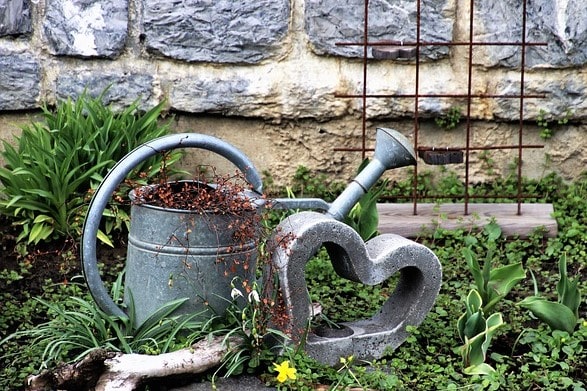Couples Counseling
Building a life with another person takes time and effort. Unfortunately, these two things are in short supply in our busy world. There is a never ending supply of tasks and obligations that threaten to divert our attention from what matters most. We have to work hard to protect that time and nurture connection.
We can fall out of step. And feeling out of sync with our chosen intimate partner is stressful. The slippery slope to relationship struggles can begin innocently enough. Perhaps a particularly busy stretch at work, an illness in the family or the arrival of a child has contributed to a growing sense of disconnection that you are feeling. One day you may be thinking, “I can’t do this forever.” Then the next day, you may be saying to yourself, “We’re fine. I don’t know what I was thinking.” It may feel hard to approach the issues and face the growing sense that something is not right.
Maybe you had a major disagreement and just have not been able to get past it. There’s tension and it’s easy say or do something that sets off conflict or sends each of you to separate corners, silently building more resentment. A cold, distant silence grows. You talk about the kid stuff, the house stuff, the logistics of the vacation. Then you may spend the evenings in separate rooms in the house. You may toss and turn at night. Maybe one person has taken up residence on the couch, in the guest room, or in the basement for more than a night or two.
Maybe you have known for some time that there were some areas of your relationship needing attention. And it’s just not getting better. You and your partner may be having the same arguments over and over - never able to resolve these things in a way that is satisfying. Sometimes you might question your commitment. There may be thoughts of having other partners or a new awareness of others around you who might be presenting this opportunity.
Our lives as couples and parents are busy. So busy, in fact, that we often have little time to actually invest in our relationships. Then there is a crisis. You may start drinking a little more to cope with the situation at home and catch a DUI. The legal and financial ramifications may cause even more conflict between you and your partner. Or maybe you have a really bad fight with your spouse and things go to a place they never have before: a glass breaks, a wall is punched – or Worse. The catalyst that pushes you and your partner to seek therapy will be unique to you and your relationship. But regardless of how it happens, suddenly it is clear: “We need some help.”
The Honeymoon Ends for All Couples
You may be looking around you and thinking that everyone else seems to have a perfect marriage. Some couples certainly are as blissfully happy as they appear, at least some of the time. But plenty of other couples present to the outside world a very different image from the reality of their daily lives behind closed doors.
The fact is that all couples go through difficult periods. Both partners grow and change over time as individuals and each partner must adapt. Today many couples come together after each partner has already formed a strong adult identity. They are seeking a partner for needs they cannot meet individually, and the expectations are often high. Forming a family may be one of these needs, but with the joys of parenthood there are increased demands. Balancing individual goals and family life can create conflict. Unanticipated caretaking responsibilities for aging extended family members can strain one partner and the stress easily spills over into the relationship.
My Two Step Approach Can Help
Step One: Discernment
Before beginning couples counseling, I will be asking both of you to take a deeper look at the current status of your relationship. I am talking about a process of discernment. We will be taking your relationship and examining it from all sides. Then we will be asking some tough questions: What is the overall condition? What are the major challenges right now? How are those challenges impacting your daily life and how you view your future together? How invested is each person in working on the challenges? What changes would each partner be willing to build a stronger relationship?
The amount of time we spend assessing the current status of the relationship will vary depending upon the condition of the marriage when you arrive at my office for counseling. By the end of this process, you and your partner will be equipped to determine which of three pathways would be best for you: committing to working on the challenges you have identified, deferring counseling until one or both of you feel more ready to address your issues, or separation.
Step Two: Counseling
My hope is that you and your partner will join me at step two, where we will embark on the pathway to better times through couples counseling. During sessions, I will be watching how you talk to each other and, specifically, whether you are really listening to and hearing each other. We will explore what is happening when you misunderstand each other. I will teach you evidence-based techniques for hearing each other more clearly.
We will talk about anger, when it tends to present, and how it divides you. This will lead us through discussions about family patterns, the influence of friends and extended family members upon your relationship, and what you have tried in the past to manage conflict. If you have children together, we will explore how any differences in your parenting styles is contributing to your sense of disconnection as a couple. We will practice, in sessions, taking breaks when needed, allowing each person an opportunity to speak and be heard, and breaking larger topics down into more smaller, more manageable pieces for discussion.
I have helped many couples to identify their recurring patterns and the root causes of their difficulties. I have seen that it is possible to name these challenges, face them head on, and then move forward together with a stronger relationship.
Possibly You Still Have Some Questions?
We Already Know We Need Help. Why Do We Need to Take Time to Assess the Relationship?
By taking the time to step back and look at the current situation for what it is, I can help you to develop some perspective. From this more centered position, we can explore feelings, communication and patterns more productively.
How Long is This Going To Take?
It is possible for us to work together for either weekly or every other week sessions, depending upon what our respective schedules can accommodate. The length of the therapy can vary widely. Some couples who begin work with me in a state of crisis and are able to work towards feeling better find that it is helpful to maintain a monthly check-in both as a reminder to prioritize the relationship and to maintain time that is set aside to talk about new challenges as they arise.
You can re-establish trust and connection with your partner. I can help you reconnect to build a strong future together by helping you to see your current challenges more clearly and helping you to address these struggles.











